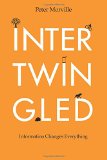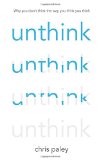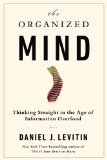August 28, 2014

Happiness by Design: Change What You Do, Not How You Think by Paul Dolan (Hudson Street, 2014)
(kindle ed.), (amazon.co.uk), (UK kindle ed.)
Book description from the publisher:
This is not just another happiness book. In Happiness by Design, happiness and behavior expert Paul Dolan combines the latest insights from economics and psychology to illustrate that in order to be happy we must behave happy. Our happiness is experiences of both pleasure and purpose over time and it depends on what we actually pay attention to. Using what Dolan calls deciding, designing, and doing, we can overcome the biases that make us miserable and redesign our environments to make it easier to experience happiness, fulfilment, and even health. With uncanny wit and keen perception, Dolan reveals what we can do to find our unique optimal balance of pleasure and purpose, offering practical advice on how to organize our lives in happiness-promoting ways and fresh insights into how we feel, including why:
• Having kids reduces pleasure but gives us a massive dose of purpose
• Gaining weight won’t necessarily make us unhappier, but being too ambitious might
• A quiet neighborhood is more important than a big house
Vividly rendering intriguing research and lively anecdotal evidence, Happiness by Design offers an absorbing, thought-provoking, new paradigm for readers of Stumbling on Happiness and The How of Happiness.
Google Books preview:
See also: Book website
Comments (0)
- happiness,new books
August 27, 2014

Intertwingled: Information Changes Everything by Peter Morville (Semantic Studios, 2014)
(kindle ed.), (amazon.co.uk), (UK kindle ed.)
Book description from the publisher:
This is a book about everything. Or, to be precise, it explores how everything is connected from code to culture. We think we’re designing software, services, and experiences, but we’re not. We are intervening in ecosystems. Until we open our minds, we will forever repeat our mistakes. In this spirited tour of information architecture and systems thinking, Peter Morville connects the dots between authority, Buddhism, classification, synesthesia, quantum entanglement, and volleyball. In 1974 when Ted Nelson wrote “everything is deeply intertwingled,” he hoped we might realize the true potential of hypertext and cognition. This book follows naturally from that.
See also: Author’s website, book excerpt
Comments (0)
- new books,reality
August 23, 2014

Unthink: And How to Harness the Power of Your Unconscious by Chris Paley (Coronet Books, 2014)
(kindle ed.), (amazon.co.uk), (UK kindle ed.)
Book description from the publisher:
Your life is dominated by your unconscious mind: by thoughts you’re unaware of and movements you don’t realise you are making. Words, colours, mannerisms and other cues you don’t realise are affecting you, change what you think. The confidence you have in your ability to reason and to consciously choose what to do is caused by a series of illusions that scientists are only just beginning to understand. The discovery of these illusions will change the way we see ourselves more than the discoveries of Darwin and Copernicus. Unthink explores the unconscious decisions we make, and covers a variety of topics, ranging from how we choose politicians and romantic partners to more abstract subjects such as whether we can consciously decide to move our fingers. The counter-intuitive observations that Chris makes in the book include: * If you want someone to fancy you, wear red and meet them somewhere frightening. * When waitresses repeat customers’ orders back to them instead of just saying ‘yes’ they receive bigger tips. * To reduce your shopping bill, start at the beer and snacks end of the store and work backwards. * If you sit someone in an upright chair when you give them good news they will be prouder of their achievements. * Having a picture of your family on your desk might make you work harder, but you’ll be rattier when you get home! Chris Paley shows us how we can understand ourselves and others better, by having a greater understanding of the way that the unconscious mind has an impact of the way we live our lives.
See also: Author’s website
Comments (0)
- new books,psychology,Uncategorized
August 19, 2014

The Organized Mind: Thinking Straight in the Age of Information Overload by Daniel J. Levitin (Dutton, 2014)
(kindle ed.), (amazon.co.uk), (UK kindle ed.)
Book description from the publisher:
New York Times bestselling author and neuroscientist Daniel J. Levitin shifts his keen insights from your brain on music to your brain in a sea of details.
The information age is drowning us with an unprecedented deluge of data. At the same time, we’re expected to make more—and faster—decisions about our lives than ever before. No wonder, then, that the average American reports frequently losing car keys or reading glasses, missing appointments, and feeling worn out by the effort required just to keep up.
But somehow some people become quite accomplished at managing information flow. In The Organized Mind, Daniel J. Levitin, PhD, uses the latest brain science to demonstrate how those people excel—and how readers can use their methods to regain a sense of mastery over the way they organize their homes, workplaces, and time.
With lively, entertaining chapters on everything from the kitchen junk drawer to health care to executive office workflow, Levitin reveals how new research into the cognitive neuroscience of attention and memory can be applied to the challenges of our daily lives. This Is Your Brain on Music showed how to better play and appreciate music through an understanding of how the brain works. The Organized Mind shows how to navigate the churning flood of information in the twenty-first century with the same neuroscientific perspective.
Google Books preview:
See also:
Author’s website
Comments (0)
- new books,psychology






